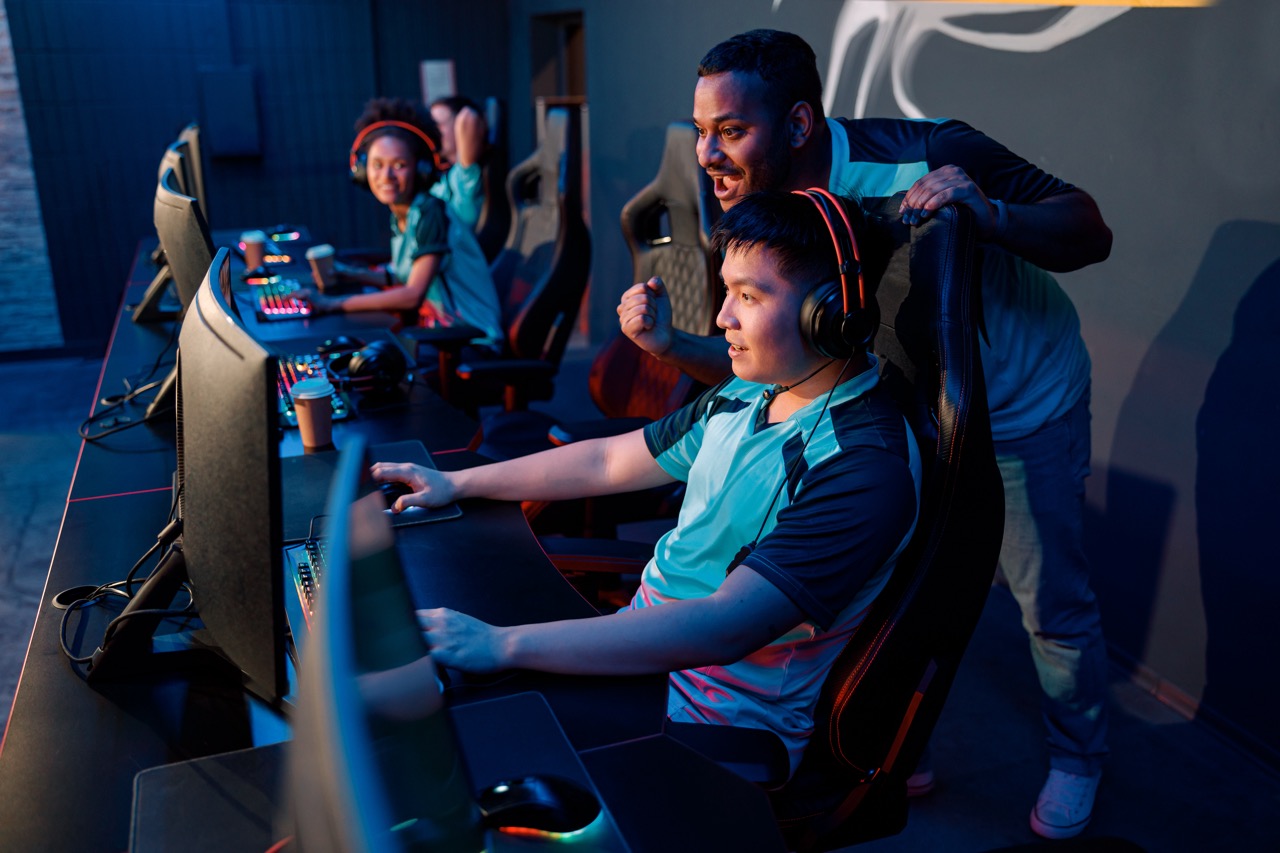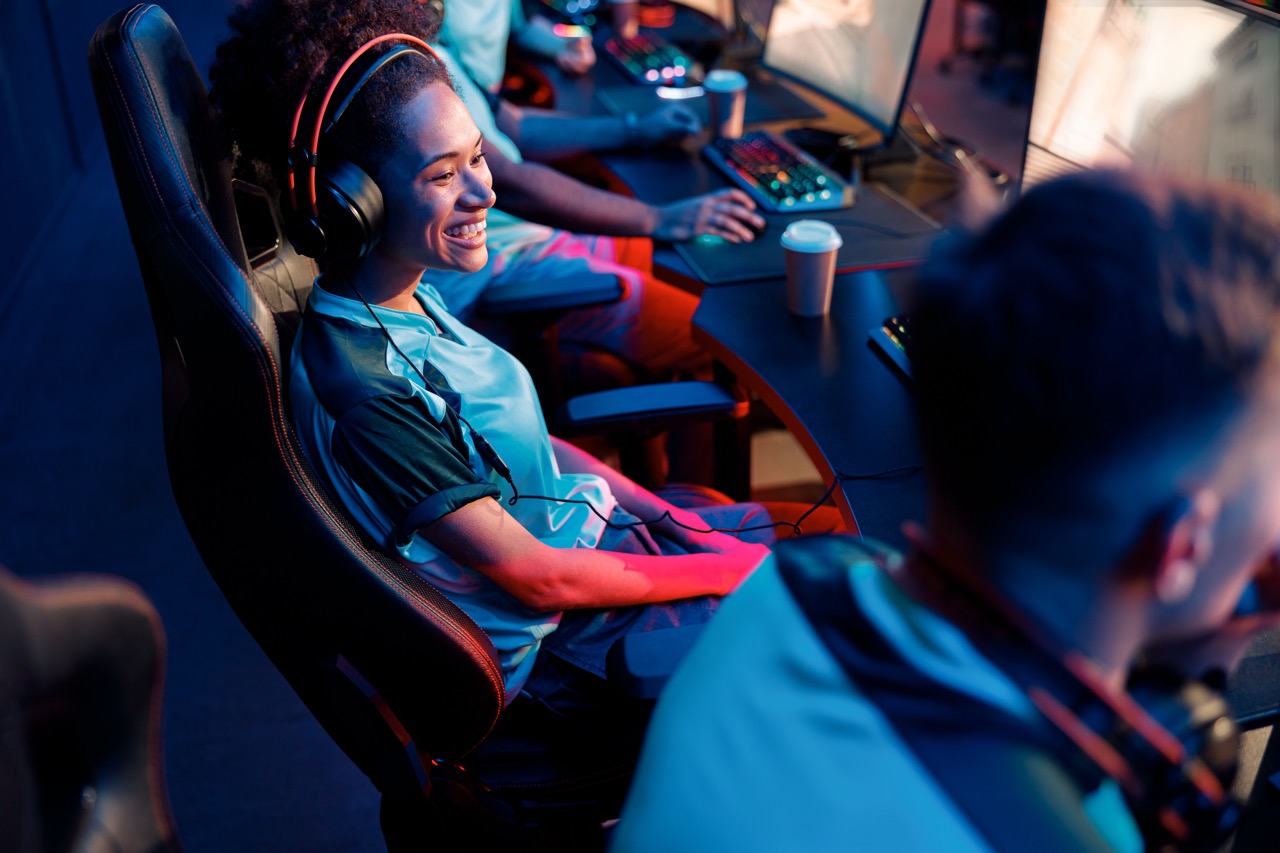In the vast landscape of the internet, few phenomena have had as profound an impact on online culture as gaming communities. These digital spaces offer more than just a place to play; they function as vibrant ecosystems where players connect, share, and create. From collaborative gameplay to meme-sharing, gaming communities shape the way we communicate, express ourselves, and even mobilize for causes. This article explores the various dimensions of how gaming communities are not only influencing their participants but also leaving an indelible mark on the broader online culture.
The Rise of Gaming Communities in the Digital Age
Gaming communities have evolved tremendously since the early days of online gaming. Initially, these communities formed around local area networks (LANs) and bulletin board systems (BBS), where players would connect to share experiences and strategies. With the advent of powerful gaming consoles and high-speed internet, a new era of online gaming emerged, allowing players from different geographical locations to interact in real time. Platforms like Steam, PlayStation Network, and Xbox Live have transformed the landscape, enabling players to forge friendships and alliances that transcend borders.
The rise of social media has also played a crucial role in the expansion of gaming communities. Platforms like Discord, Reddit, and Twitter have become essential tools for gamers to communicate, collaborate, and organize. These platforms facilitate the creation of sub-communities around specific games, genres, or even playstyles. The ability to share gameplay videos, live streams, and fan art has further enriched the culture surrounding gaming, making it more inclusive and diverse. Gamers are no longer just players; they are content creators, educators, and influencers, all contributing to a collective identity.
As gaming communities have grown, they have also become more organized. Events like eSports tournaments and gaming conventions serve not only as venues for competition but also as social gatherings where members can meet face-to-face. These events have cultivated a sense of belonging and camaraderie among players, reinforcing the idea that gaming is more than just a hobby—it’s a lifestyle. The rise of gaming communities has fostered an environment where players can express themselves freely, share their passions, and collaborate on projects that matter to them.
Moreover, the impact of gaming communities extends beyond individual games; they represent a significant cultural shift. The idea of gaming as a legitimate form of social interaction has gained traction, challenging traditional notions of what it means to connect with others. These virtual spaces have become a refuge for many, offering acceptance and understanding in a world that can often feel isolating. As gaming communities continue to rise, they play an essential role in shaping the modern digital landscape.
Connecting Across the Globe: Gamers Unite Online
One of the most remarkable aspects of gaming communities is their ability to connect people from all over the world. Gamers can team up with friends in different countries, fostering international friendships and cultural exchanges. This global connectivity enriches the gaming experience by exposing players to diverse perspectives and playstyles. It can also lead to interesting collaborations, where players from different backgrounds come together to create unique content or engage in joint ventures within the gaming universe.
Communication tools have made it easier than ever for gamers to share experiences and strategies. Voice chats, in-game messaging, and social media groups allow players to remain in constant contact, building relationships that extend beyond the game itself. These interactions lead to the formation of tight-knit communities that support each other, whether through sharing tips for difficult levels or providing emotional support during challenging times. The bonds forged in these spaces can be incredibly strong, sometimes even leading to lifelong friendships.
The global nature of gaming communities also reflects cultural diversity. Players often share their local customs, languages, and traditions, creating a melting pot of ideas and experiences. This cultural exchange enhances the gaming environment, making it a richer experience for all involved. Gamers learn to navigate different social norms and communication styles, fostering a greater understanding and appreciation of each other’s backgrounds. In a way, gaming becomes a universal language, breaking down barriers that might exist in face-to-face interactions.
As online gaming continues to grow, the importance of connecting with others on a global scale cannot be overstated. These communities foster a sense of unity, reminding us that despite our differences, we can come together to share a common passion. The friendships that blossom in these virtual realms often lead to real-world connections, as players meet up at conventions or organize local gaming events. This phenomenon illustrates how gaming communities are not just confined to screens; they extend into our everyday lives, enriching our social fabric.
Inside the Virtual Hangout: What Makes These Spaces Tick?
At the core of gaming communities lies the concept of shared experiences. Players come together not only to enjoy a game but also to celebrate victories, commiserate losses, and engage in friendly banter. These shared moments create a sense of belonging and encourage players to contribute to the community. Whether it’s through sharing strategies, creating fan art, or streaming gameplay, participants feel empowered to express themselves and connect with others.
The design of many gaming platforms also plays a significant role in fostering community interaction. Features like guilds, clans, and teams enable players to form groups based on mutual interests or goals. Many games incorporate social elements, such as leaderboards or in-game events, that encourage teamwork and friendly competition. These features promote engagement and ensure that players have ample opportunities to connect and collaborate, strengthening the community’s bonds.
Another key factor in the success of gaming communities is their inclusivity. Many gaming spaces actively promote diversity and welcome players of all backgrounds, genders, and skill levels. This inclusivity creates an environment where everyone feels valued and respected, leading to healthier interactions and more meaningful connections. As a result, gaming communities are often seen as safe havens where individuals can be themselves without fear of judgment.
Finally, moderation and community management play a crucial role in maintaining a positive atmosphere. Many gaming communities have dedicated moderators who enforce rules and guidelines to ensure that interactions remain respectful and constructive. This proactive approach to community management helps to mitigate toxicity and fosters a sense of safety for all members. By prioritizing a welcoming environment, gaming communities can thrive, allowing players to focus on what truly matters: the joy of gaming and the connections built within.
Language and Slang: How Gamers Create Their Own Culture
Language plays a significant role in shaping the identity of gaming communities. Over time, gamers have developed a unique lexicon filled with slang, abbreviations, and memes that serve as a shorthand for shared experiences. Terms like "gg" (good game), "noob" (newbie), and "pwned" (owned) have become part of the everyday vocabulary among players, establishing a sense of belonging and camaraderie. This linguistic evolution demonstrates how language can be a powerful tool for community-building.
The use of specialized terminology also helps to create an insider culture among gamers. New players often have to navigate this unique language, which can be both challenging and rewarding. As they learn the lingo, they become more immersed in the community, gaining a sense of identity and belonging. This process fosters engagement and encourages players to participate more actively in discussions, game strategies, and social interactions.
Memes, in particular, have become a cultural phenomenon within gaming communities. Often humorous, these images and phrases quickly circulate among players, creating a shared understanding that transcends individual games. Memes can encapsulate complex emotions, experiences, or criticisms of the gaming industry, making them a potent form of expression. The rapid spread of memes showcases the creativity and humor that thrives in gaming communities, further solidifying their culture.
The development of a distinct language and slang not only enhances community cohesion but also serves as a barrier to entry for outsiders. This exclusivity can create a sense of pride among community members, as they navigate their unique language and culture. However, it’s essential to strike a balance, ensuring that new players feel welcomed and included. As gaming communities continue to evolve, the language they create will undoubtedly reflect their growth and the diverse experiences of their members.
From Memes to Movements: The Impact of Gaming Trends
Gaming communities are not just about playing games; they are also potent agents of change and cultural influence. Memes born in these spaces can quickly evolve into larger movements, addressing social issues, promoting inclusivity, and even advocating for change within the gaming industry. The power of gaming communities to mobilize around causes has been evident in various instances, from charity fundraising efforts to awareness campaigns for mental health.
One notable example of this influence is the rise of gaming charity streams. Gamers often come together to host live-streamed events, raising funds for various causes while engaging with the community. These events not only demonstrate the generosity of the gaming community but also highlight the potential for games to be a platform for social good. The ability to use gaming as a vehicle for change has gained traction, inspiring many to take part and contribute to something greater than themselves.
Additionally, gaming communities have played a vital role in advocating for inclusivity and representation in games. Movements aimed at increasing diversity within gaming narratives, characters, and development teams have gained momentum, driven by passionate players who demand change. This collective voice empowers gamers to challenge the status quo, leading to a more inclusive industry that reflects the diverse experiences of its player base.
The impact of gaming trends extends beyond individual causes; they can shape public opinion and cultural narratives. As gaming communities engage with larger societal issues, they bring attention to topics that may otherwise go unnoticed. By leveraging their collective power, gamers can drive conversations and foster understanding around critical social matters. This evolution illustrates how gaming communities are not merely entertainment hubs; they are dynamic spaces where culture, advocacy, and creativity intersect.
The Future of Online Culture: Gamers Leading the Way
As we look to the future, it’s clear that gaming communities will continue to play a pivotal role in shaping online culture. With technology advancing at a rapid pace, the way we interact and connect through gaming will evolve even further. Virtual reality, augmented reality, and other emerging technologies are set to transform the gaming experience, creating even more immersive environments that foster community engagement.
The rise of streaming platforms such as Twitch and You










